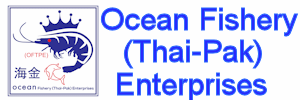Fishery and Aquaculture Country Profile for Benin
- aquatic species caught by country or area, by species items, by
FAO major fishing areas, and year, for all commercial, industrial,
recreational and subsistence purposes. The harvest from mariculture,
aquaculture and other kinds of fish farming is also included.
The
Ocean
Data and Information Network for Africa (ODINAFRICA) brings
together marine institutions from twenty-five Member States of the
Intergovernmental Oceanographic Commission of UNESCO from Africa
(Algeria, Angola, Benin, Cameroon, Comoros, Congo, Cote d'Ivoire,
Egypt, Gabon, Ghana, Guinea, Kenya, Madagascar, Mauritania,
Mauritius, Morocco, Mozambique, Namibia, Nigeria, Senegal,
Seychelles, South Africa, United Republic of Tanzania, Togo, and
Tunisia). The goal of the current phase of ODINAFRICA is to improve
the management of coastal and marine resources and the environment
in participating countries by: enhancing data flows into the
national oceanographic data and information centres in the
participating countries, strengthening the capacity of these centres
to analyse and interpret the data so as to develop products required
for integrated management of the coastal areas of Africa, and
increase the delivery of services to end users.
AQUASTAT is FAO's
global information system on water and agriculture developed by the
Land and Water Division. It collects, analyses and disseminates data
and information by country and by region. Its aim is to provide
users interested in global, regional and national analyses with
comprehensive information related to water resources and
agricultural water management across the world, with emphasis on
countries in Africa, Asia, Latin America and the Caribbean.
Information for Benin
|
Ocean
Health Index Benin - The Ocean Health Index is a valuable tool for the
ongoing assessment of ocean health. By providing a means to advance
comprehensive ocean policy and compare future progress, the Index
can inform decisions about how to use or protect marine ecosystems.
The Index is a collaborative effort, made possible through
contributions from more than 65 scientists/ocean experts and
partnerships between organizations including the National Center for
Ecological Analysis and Synthesis, Sea Around Us, Conservation
International, National Geographic, and the New England Aquarium.
Information for Benin
Fishery
Committee for The West Central Gulf of Guinea - Member
Countries are Ivory Coast, Liberia, Ghana, Togo, Benin and Nigeria.
Rebuild and maintain robust fisheries resources through policy
reforms, cooperative regulatory planning, good governance and
improvements in institutions. Develop and implement appropriate
management frameworks that ensure fisheries resources are harvested
sustainably, improved intra-regional and international trade of fish
and fishery products and maximum economic and social benefits are
obtained from the fisheries. Develop the capacity of Members’
Small-scale fishers and other operators to create sustainable
livelihoods for their people from the sustainable harvest,
processing and marketing of their fisheries resources. Enhance
national capabilities for efficient, cost effective and sustainable
fisheries monitoring, control and surveillance, and establishing
mechanisms for effective regional cooperation in MCS and enforcement
to stop illegal, unreported and unregulated (IUU) fishing in the
West Central Gulf of Guinea. Strengthen cooperative research and
ensure that resource-related decisions are based on sound knowledge,
scientific methodology and best information available. Our Strategic
organizational/functional goal is "To ensure the effective
implementation of the Committee’s work through results-based
management, improved communication, and better financial, human and
knowledge management systems and tools".
|




